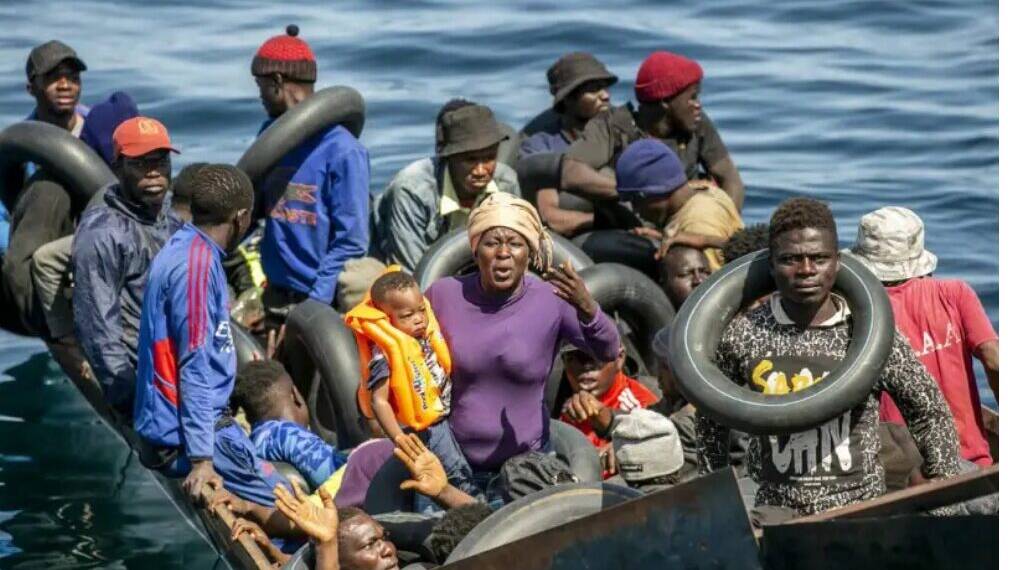The European Union is intensifying its push for tougher action from Libyan authorities to curb the surge in Mediterranean migrant sea crossings, reflecting growing alarm over both humanitarian risks and the political fallout of irregular migration on European societies.
EU’s Firm Approach Amid Rising Crossings
In the first two months of 2025, illegal border crossings via the Central Mediterranean route—linking North Africa to Europe—rose by 48% compared to last year. This sharp increase has prompted EU Migration Commissioner Magnus Brunner to announce a firm approach, with a high-level delegation set to visit Libya, including representatives from Greece, Italy, and Malta.
Their mission: demand stronger measures from both the UN-recognized government in Tripoli and the rival authority in the east to prevent migrant boats from departing Libya’s shores.
Despite ongoing conflict and documented human rights abuses, Libya remains a key departure point. The Central Mediterranean is one of the world’s most dangerous migration routes, with 542 migrants reported dead or missing so far in 2025 alone. Recent tragedies, such as the deadly sinking of a migrant boat off the Greek coast in 2023, have only heightened European urgency.
The EU’s Expanding Externalization Strategy
The EU’s strategy goes beyond diplomatic pressure. Through its Border Assistance Mission in Libya (EUBAM Libya), the EU has been actively working to strengthen Libyan border management, empower security institutions, and expand cooperation with agencies like Frontex.
These efforts are part of a broader “externalization” policy—outsourcing migration control to third countries to contain flows before they reach Europe.
Recent leaked documents show that EUBAM is entering a “consolidation phase,” with deeper integration of EU experts into Libyan agencies, including the controversial Libyan Coast Guard. The EU has committed hundreds of millions of euros to Libya for migration management, voluntary returns, and border security.
However, these policies have drawn criticism for enabling or overlooking abuses, as migrants intercepted at sea are often returned to detention centers where they face dire conditions and violations of their rights.
Also Read: Dutch government collapses as right-wing leader Geert Wilders pulls out over immigration clash.
Social Cohesion and Political Backlash in Europe
The surge in irregular migration from Africa is not only a humanitarian concern but also a source of social and political tension within Europe. Many European societies have experienced rising polarization, with migration debates fueling far-right movements and straining the cohesion of multi-ethnic communities.
The perception that national borders are porous and that integration is faltering has led to increased support for restrictive policies and skepticism toward the EU’s ability to manage migration effectively.
This backlash is evident in the growing willingness of EU governments to prioritize border security over humanitarian obligations, sometimes at the expense of international norms and human rights.
The reliance on third countries like Libya—despite their instability and record of abuses—reflects the depth of political anxiety over the impact of illegal immigration on European populations.
Also Read: European Union Facing Existential Crisis Amid Economic and Political Struggles
Human Rights Concerns and the Limits of EU Policy
While the EU claims to monitor the use of its funds and equipment in Libya, independent reports suggest that oversight is limited and that the “do not harm” principle is not always upheld. International organizations and NGOs have documented repeated violations against migrants in Libyan detention centers, raising questions about the ethical and legal implications of EU cooperation with Libyan authorities.
The EU’s call for tougher measures from Libya underscores the complex intersection of security, humanitarian, and political challenges posed by irregular migration across the Mediterranean.
As the bloc seeks to stem the flow at its source, it faces mounting criticism for compromising on human rights and for policies that may ultimately undermine the social cohesion it seeks to protect.
The dilemma remains acute: how to balance the urgent need for border control with the EU’s foundational values and its long-term stability.








